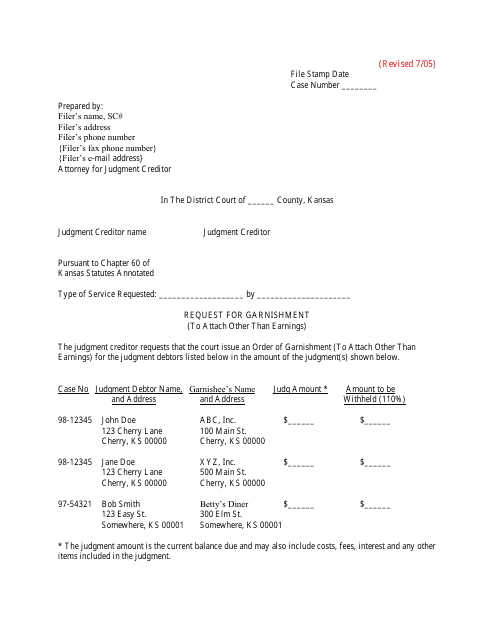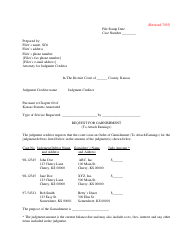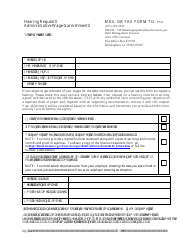Request for Garnishment - Kansas
Request for Garnishment is a legal document that was released by the Kansas District Courts - a government authority operating within Kansas.
FAQ
Q: What is a Request for Garnishment?
A: A Request for Garnishment is a legal document filed by a creditor to collect an unpaid debt by garnishing the debtor's wages or bank account.
Q: Who can file a Request for Garnishment in Kansas?
A: A creditor who has a court judgment against a debtor can file a Request for Garnishment in Kansas.
Q: What can be garnished in Kansas?
A: In Kansas, wages, bank accounts, and other property can be garnished to satisfy a debt.
Q: How much of a person's wages can be garnished in Kansas?
A: In Kansas, up to 25% of a person's disposable earnings can be garnished, or the amount by which their earnings exceed 30 times the federal minimum wage, whichever is less.
Q: How long does a garnishment last in Kansas?
A: A garnishment in Kansas typically lasts until the debt is paid in full or a court orders it to be stopped.
Q: Can a person be fired for having their wages garnished?
A: No, it is illegal for an employer to fire an employee solely because their wages are being garnished in Kansas.
Q: Can a person object to a garnishment in Kansas?
A: Yes, a debtor can object to a garnishment by filing a written objection with the court within a certain time period.
Q: What should a person do if they receive a Request for Garnishment in Kansas?
A: If a person receives a Request for Garnishment, it is important to read the document carefully and seek legal advice to understand their rights and options.
Form Details:
- Released on July 1, 2005;
- The latest edition currently provided by the Kansas District Courts;
- Ready to use and print;
- Easy to customize;
- Compatible with most PDF-viewing applications;
- Fill out the form in our online filing application.
Download a printable version of the form by clicking the link below or browse more documents and templates provided by the Kansas District Courts.






